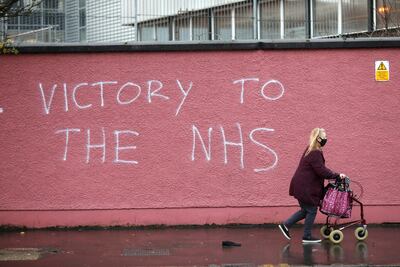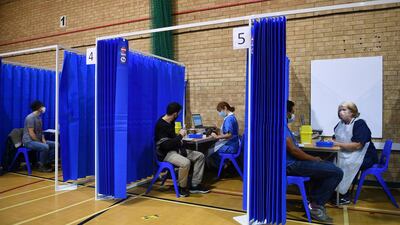With several Covid-19 vaccines nearing completion, there is a hope that things might soon return to normal. The pandemic has taken an incredible toll already. But we will have to adjust to the idea that while some things could go back to normal, others will not and this might not be so bad.
The pandemic affected the poor and minorities disproportionately and if anything, proved that the old normal was not acceptable.
In recent weeks, we have seen the results of several Covid-19 trials, with vaccines beginning to be rolled out sooner than we expected. Pfizer, Moderna, AstraZeneca and Johnson & Johnson appear to be among the most promising.
Experts such as Scott Gottlieb, a former commissioner of the US Federal Drug Agency, have claimed these vaccines could be “real game changers as we go into 2021”.
The vaccines, however, will not be rolled out as quickly as one might like.
Millions of people, health workers and the especially vulnerable, will need the vaccine before herd immunity is established and the pandemic cycle is broken. But there is light at the end of the tunnel.
And given the positive developments of these trials, we can begin to plan for the future in which we incorporate some of this year's positive changes.
Things are not going to be easy going forward.
In Britain, for instance, the economy is set to contract 11.3 per cent in 2020 – the most in over 300 years.

The global unemployment figures and shuttering of businesses across the world were among this year's most sobering statistics, second only to the figure of over 1.5 million deaths due to Covid-19.
It is said that losing a job can feel like the death of someone close. While there have been massive job cuts this year, companies in several sectors have slowly begun rehiring.
The difference from a pre-Covid-19 world is that more people are possibly being recruited to work from home – saving costs for organisations as well as employees.
Even in the UK, despite the massive slump in economy, new positions are being advertised more aggressively than a couple of months ago.
Then there is the matter of mental health. As Erin N Marcus, a professor of clinical medicine at the University of Miami, wrote in the The Washington Post: "Along with the resurgence of Covid-19, an insidious and less perceptible pandemic has arisen: one of anxiety, depression and grief."

Restrictions on human contact have been difficult – more so for some than others.
With a possible end in sight of lockdown and socialising restrictions, we can reasonably assume that in just a matter of another few months, it is not going to be like this any more, in terms of going out and socialising.
After the year it has been, this does a great deal for people’s well-being. An excess of stress, it has been documented, leads to physical illness and affects the lives of people in the same way as a serious disease.
Yes, there will be long-lasting consequences – and some probably for the better. Steve Joordens, a psychology professor from the University of Toronto Scarborough, said recently: “We are walking around fearing human beings, fearing strangers.”
He noted that after the pandemic we will have tighter social circles – and that, I would argue, may not be a bad thing. Perhaps it will lead us to humanise each other, all the more essential in a time when social media can lead us to do the opposite.
There are some good things to look forward to in the post-pandemic era. As a researcher and academic, I certainly have missed conferences, seminars, participating with my colleagues.
But more often than not, these were limited in what expertise they could draw upon – for the simple reason that experts could not all be flown in.
In recent months, however, I have participated in online conversations that brought together talent from around the world, with no travel costs.
I am planning my own conference soon on 30 years after the release of Nelson Mandela and 10 years after the beginning of the Arab uprisings, with participants in South Africa, Lebanon, the US, the UK and other countries – without having to foot a massive bill.
I am hoping that even when we do return to conventional conferences we will keep up the use of these technologies. By all indicators, this will be the new normal.
Bringing in expertise via technology is not just likely to positively affect research institutes and universities but, I suspect, on more permanent office set-ups as well.
While the new normal varies for people depending on their different industries and countries, creating the opportunity to contribute fully without being in the office opens up new possibilities.
It is invigorating and exciting – because it means that employees can put to use their skills during office hours and in the time and expense saved on commuting, lead a more well-rounded life.
This would enable people to pursue other interests that foster well-being and reduce stress levels, thus contributing to better overall health.
Going forward, in a world where vaccines are readily available, if we can learn how to incorporate some of the practices learnt during the pandemic – with regard to socialising, travel and work – into a healthier, safer, more cost-effective and time-saving structure, we will have learnt something valuable this year.
Dr H A Hellyer is a senior associate fellow at the Royal United Services Institute (RUSI) in London and the Carnegie Endowment for International Peace in Washington DC


